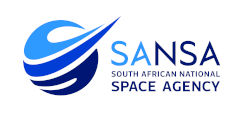09 Jul South Africa’s space future demands STEM subjects
Our Societies are dominated and even ‘driven’ by ideas and products from science and technology (S&T) and it is very likely that the influence of science and technology on our lives will continue to increase in the years to come. Our attendance of this annual event clearly emphasised that. African Education Week is the meeting & trading platform for everyone who is passionate about improving the standard of education in Africa.
The resonating theme throughout the convention was that modern societies need people with scientific, technological, engineering and maths qualifications at the highest level as well as a general public which has a broad understanding of the contents and methods of science and technology, coupled with an insight into their role as social forces that shape the future.
The motto at SANSA is in service of humanity. We are therefore pleased when a gathering of such African Education Week emphasizes the importance of investing more in Science, Technology, Engineering and Mathematics (STEM). After all, scientific and technological knowledge, skills and artefacts ‘invade’ all realms of life in modern society: the workplace and the public sphere are increasingly dependent on new as well as upon more established technologies. So, too, are the private sphere and our leisure time.
Here at the SANSA we are always on the lookout for a workforce of problem-solvers, innovators, and inventors who are self-reliant and able to think logically is one of the critical foundations that drive our operations. We are therefore pleased when we see key stakeholders in education field encourage young South Africans to take up STEM subjects in high school and universities.
This is in line with SANSA’s aim of promoting the uptake and appreciation of science by the youth, and improves the overall scientific literacy and engagement the country’s populace. STEM education is vital to ensuring the long-term viability and well-being of South African technological and scientific advancement, as well as for providing a new generation of well-qualified engineers, technicians and scientists who can improve upon the achievements of the current generation of space engineers and scientists.
The availability of school leavers with appropriate aptitude and attributes to pursue higher education STEM studies means SANSA can look for suitable scientists, engineers and technologists, researchers. This would address some of our human capital needs as those subjects speaks directly to our programmes including the development of scares and transferable skills as well as transforming the country into a knowledge-based economy.
Even more pleasing was seeing the Department of Science and Technology (DST) being one of the key role players at that indaba. They were represented in all areas from speakers, workshop panellists and exhibitions. As you are aware, the DST established the SANSA in December 2010 with a vision of becoming a leading agency on the continent, coordinating and implementing pace activities to contribute to socio-economic growth and sustainable development.
A key way to meet the emerging challenge of our country’s developing economy for the 21st century is to grow our national skills base ? particularly the Science, Technology, Engineering and Mathematics (STEM) skills of our school leavers. Space science and technology is strongly driven by innovation and technological development.
The space industry is now big business. It is not simply a matter of space travel. It’s also about an industry that has enormous potential future growth for South Africa STEM subjects will drive that growth.



